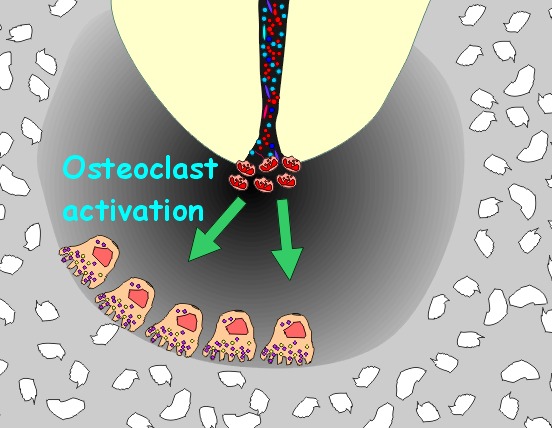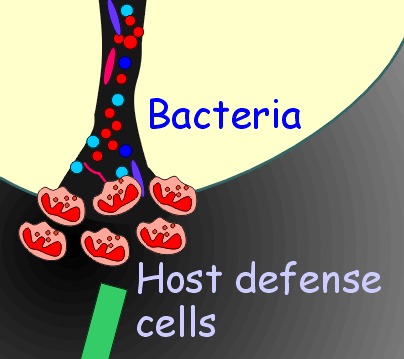Chronic apical periodontitis




Chronic AP (asymptomatic AP) is the most common form of apical periodontitis. According to epidemiological studies, 95% of teeth with apical periodontitis do not have significant symptoms within one year. Often the patients are unaware of the disease when it is diagnosed after a radiographic examination.
Apical periodontitis is a result of bacterial activity in an infected, usually necrotic root canal. Although the radiographical sign of chronic AP, the bone lesion, is seen outside the tooth, the etiological agents, bacteria, are found inside the root canal system. The development of the bone lesion is supposed to be caused by increased osteoclast activity and decreased osteoblast activity. Osteoclasts are activated by a series of immunological reactions that are started by the interaction of bacterial antigens with the host's defence cells. Interleukins and other cytokines play a central role as inflammatory mediators in chronic AP.